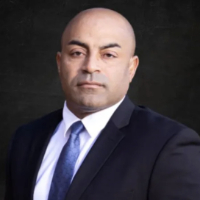Stanley Criminal Lawyer, New Mexico
Sponsored Law Firm
-
 x
x

Click For More Info:
-
De Oppresso Liber Law
223 N Guadalupe #567 Santa Fe, NM 87501» view mapCriminal Defense Law Liberating The Oppressed
De Oppresso Liber Law has been helping clients with catastrophic personal injury cases and serious crimes for more than 30 years.
505-695-6183
John W. Day
✓ VERIFIEDJohn W. Day is an attorney who practices in criminal defense, civil litigation, wrongful death and government misconduct/civil rights litigation. J... (more)
Todd J. Bullion
✓ VERIFIEDI have extensive trial experience having tried over forty (40) cases in my career ranging from simple DWI to First Degree Murder. I have worked in hig... (more)
Mark A. Keller
✓ VERIFIEDMark A. Keller and his team of attorneys provide aggressive legal defense for people in Albuquerque, the surrounding area and throughout the State of ... (more)
Boglarka Foghi
✓ VERIFIEDThe Foghi Law Firm was founded by Boglarka Foghi in 2009, specializing in criminal defense, family law, and business law. Managing Partner Boglarka F... (more)
Rachel Walker Al-Yasi
✓ VERIFIEDCriminal Lawyer proudly serving Albuquerque, New Mexico and the surrounding areas. Please call 800-578-4330 to speak with Rachel Walker Al-Yasi today.... (more)
Leonard J. Foster
✓ VERIFIEDLeonard J. Foster accepts cases involving Personal Injury, Criminal Law, Business Law, & Native Peoples and is an active Lawyer practicing in Albuquer... (more)
Eric Raymon
✓ VERIFIEDIn his years of extensive legal experience, Mr. Raymon has handled a wide array of cases, always striving to provide the best service to his clients. ... (more)
Ryan D. Baughman
✓ VERIFIEDThe Law Office of Ryan D. Baughman, LLC is a law office based out of Albuquerque, New Mexico. The office is led by solo-practitioner Ryan D. Baughman,... (more)
Joshua A. Goldberg
✓ VERIFIEDJoshua Goldberg is a practicing lawyer in the state of New Mexico who handles criminal matters.
 William H. Snowden Santa Fe, NM
William H. Snowden Santa Fe, NM Practice AreasExpertise
Practice AreasExpertise









